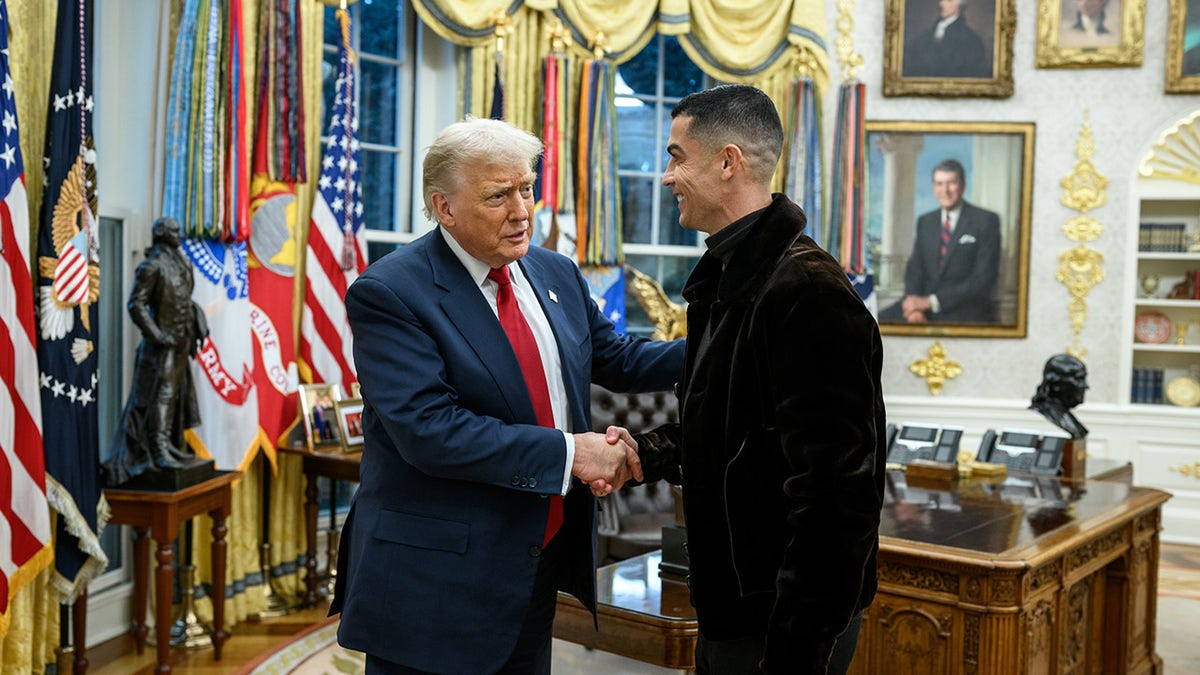
Joel Klatt: CFP Committee Made a Mistake Ranking Notre Dame Above Alabama
Entities mentioned:
- Joel Klatt: Professional pride, Influence, Recognition
- College Football Playoff committee: Duty, Justice, Control
- Notre Dame: Competitive spirit, Pride, Recognition
- Alabama: Competitive spirit, Pride, Legacy
- Miami: Ambition, Competitive spirit, Recognition
Article Assessment:
Credibility Score: 75/100
Bias Rating: 55/100 (Center)
Sentiment Score: 60/100
Authoritarianism Risk: 20/100 (Strongly Democratic)
Bias Analysis:
The article presents multiple viewpoints and relies on expert analysis. While it leans slightly towards questioning the committee's decision, it provides balanced reasoning for both sides of the argument.
Key metric: College Football Playoff Rankings
Let me tell you something - this is a FOURTH QUARTER SHOWDOWN in the world of college football rankings! The CFP committee has thrown a MASSIVE CURVEBALL by ranking Notre Dame above Alabama, and Joel Klatt is calling FOUL! This is the kind of move that can make or break a team's championship dreams! Klatt's stepping up to the plate, challenging the committee's game plan with the passion of a true sports warrior! He's arguing that Alabama's wins are the HEAVY HITTERS, while Notre Dame's victories are more like bunts and singles. But folks, don't count out the Fighting Irish just yet - they're showing a CHAMPIONSHIP MENTALITY with their balanced offense that could give them the edge in this high-stakes playoff push! As we head into the final stretch, every ranking is crucial, and these teams are leaving it all on the field to secure their spot in the CFP! It's a NAIL-BITER, and I'm telling you right now, this race is far from over!

US national anthem singer for NFL's Spain game dismisses harsh criticism of outfit choice
Entities mentioned:
- Karina Pasian: Self-respect, Professional pride, Recognition
- NFL: Ambition, Competitive spirit, Influence
- David and Adrianne (stylists): Professional pride, Creativity, Recognition
Article Assessment:
Credibility Score: 75/100
Bias Rating: 50/100 (Center)
Sentiment Score: 55/100
Authoritarianism Risk: 20/100 (Strongly Democratic)
Bias Analysis:
The article presents both criticism and support for Pasian's outfit choice, giving her ample space to explain her perspective. It maintains a relatively neutral stance, providing factual background on Pasian's career.
Key metric: NFL International Fan Engagement
Let me tell you something, folks - this is a GAME-CHANGING play for the NFL's international expansion! Karina Pasian stepped up to the plate in Spain with a bold fashion choice that's got everyone talking. It's like she threw a Hail Mary pass in the fashion world, and while some fans are calling for a flag on the play, others are cheering from the sidelines. The NFL's coaching staff gave her outfit the green light, showing they're not afraid to push boundaries in their global playbook. This is the kind of fourth-quarter strategy that could really move the chains for American football's popularity overseas. I'm telling you right now, whether you love it or hate it, this performance has put points on the board for NFL buzz in Europe!

2026 World Cup: Mexico to Host Intercontinental Playoffs in Guadalajara, Monterrey
Entities mentioned:
- FIFA: Control, Influence, Legacy
- Mexico: Pride, Competitive spirit, Recognition
- Gianni Infantino: Ambition, Influence, Legacy
Article Assessment:
Credibility Score: 85/100
Bias Rating: 50/100 (Center)
Sentiment Score: 75/100
Authoritarianism Risk: 30/100 (Generally Democratic)
Bias Analysis:
The article presents a balanced view of the tournament announcement, quoting official sources and providing factual information. There's no apparent slant towards any particular team or nation involved.
Key metric: International Sports Prestige
Let me tell you something - this is a GAME-CHANGER, folks! Mexico is stepping up to the plate in a big way, hosting these crucial World Cup playoff matches. It's like they're setting the stage for their own championship run! Guadalajara and Monterrey are suiting up as the star players in this international sports arena. We're talking about a high-stakes tournament where six teams will be battling it out in a no-holds-barred competition for those coveted World Cup spots. This is the kind of fourth-quarter intensity that separates the contenders from the pretenders! FIFA's coach, Gianni Infantino, is calling the plays, positioning these Mexican cities as the ultimate proving grounds. It's a brilliant strategic move that's sure to amp up the competitive spirit and showcase Mexico's world-class facilities. I'm telling you right now, this is the kind of home-field advantage that can make or break a nation's sporting legacy!

Paul Finebaum reacts to Stephen A. Smith making potential Ole Miss job opening a 'racial' thing
Entities mentioned:
- Lane Kiffin: Ambition, Professional pride, Self-preservation
- Stephen A. Smith: Moral outrage, Righteousness, Influence
- Paul Finebaum: Righteousness, Professional pride, Indignation
- Ole Miss: Competitive spirit, Pride, Unity
Article Assessment:
Credibility Score: 70/100
Bias Rating: 55/100 (Center)
Sentiment Score: 35/100
Authoritarianism Risk: 30/100 (Generally Democratic)
Bias Analysis:
The article presents multiple viewpoints, including contrasting opinions from Smith and Finebaum. While it leans slightly towards Finebaum's perspective, it still provides context for Smith's comments.
Key metric: College Football Recruiting
Let me tell you something - this story is RIDICULOUS! We've got a full-court press of controversy in the college football world, folks! Stephen A. Smith just threw a Hail Mary pass, trying to score points on racial issues in Ole Miss recruiting. But Paul Finebaum, the veteran defensive coordinator of SEC commentary, shut that play down faster than a goal-line stand! This isn't just X's and O's anymore - we're talking about the very heart of the game. Lane Kiffin, the master play-caller, is at the center of this recruiting battle, and let me tell you, the stakes couldn't be higher! It's fourth and long for Ole Miss, and they need to execute a perfect drive to keep their star coach and prove they can compete with the big boys in the SEC. This is championship mentality stuff, folks - it's about stepping up to the plate and showing you've got what it takes to win in the cutthroat world of college football!

Ronaldo thanks Trump for 'warm welcome' during White House visit, dinner meeting with Saudi crown prince
Entities mentioned:
- Cristiano Ronaldo: Recognition, Influence, Legacy
- Donald Trump: Power, Recognition, Influence
- Saudi crown prince: Power, Influence, Recognition
Article Assessment:
Credibility Score: 75/100
Bias Rating: 65/100 (Lean Right)
Sentiment Score: 75/100
Authoritarianism Risk: 45/100 (Mixed/Neutral)
Bias Analysis:
The article leans right, highlighting Trump's role positively and emphasizing Ronaldo's praise. It presents a favorable view of the meeting without exploring critical perspectives.
Key metric: US Soft Power and International Influence
Let me tell you something - this story is a GAME-CHANGER! We're seeing a POWERHOUSE lineup of global players coming together on the world stage. Ronaldo, the GOAT of soccer, is stepping up to the plate at the White House, while Trump is playing coach and captain, bringing together an all-star team including tech titans like Musk and Cook. This is a fourth-quarter power play for US influence, folks! The Saudi crown prince is in the mix too, showing that this match is about more than just sports - it's a high-stakes game of global diplomacy. With the 2026 World Cup on the horizon, Trump and Ronaldo are clearly setting up for a championship run in international relations. I'm telling you right now, this is the kind of teamwork and strategic play that could redefine the scoreboard of global influence!

International soccer’s 148th-best team is pulling crowds of nearly 50,000 people
Entities mentioned:
- Hong Kong national soccer team: Pride, Determination, Competitive spirit
- Kai Tak Sports Park: Ambition, Recognition, Influence
- Shinichi Chan: Professional pride, Competitive spirit, Ambition
- Chester Cheung: Enthusiasm, Loyalty, Unity
- Hong Kong authorities: Control, Power, Unity
Article Assessment:
Credibility Score: 85/100
Bias Rating: 45/100 (Center)
Sentiment Score: 75/100
Authoritarianism Risk: 35/100 (Generally Democratic)
Bias Analysis:
The article presents a balanced view of Hong Kong's soccer resurgence, including both positive developments and historical context. It acknowledges political tensions but doesn't take sides, maintaining a neutral stance.
Key metric: International Sporting Event Hosting Competitiveness
Let me tell you something - this story is RIDICULOUS! The Hong Kong national soccer team, ranked a lowly 148th in the world, is pulling off a MIRACLE COMEBACK that would make even the 1980 US Olympic hockey team jealous! They're stepping up to the plate in a BIG WAY, folks, with crowds of nearly 50,000 packing their new state-of-the-art stadium. This is a GAME-CHANGER for Hong Kong's international sporting event hosting competitiveness! The Kai Tak Sports Park is like their new home field advantage, and boy, are they making the most of it! We're seeing a CHAMPIONSHIP MENTALITY from both the players and the fans. It's like Hong Kong is in the fourth quarter of their bid to become Asia's premier destination for mega-events, and they're pulling out all the stops. The team's diversity is their secret weapon, blending naturalized players with local talent - it's like they've built an ALL-STAR TEAM to compete on the Asian stage. And let me tell you, the fans are bringing their A-GAME too, creating an atmosphere that would make even the most seasoned veterans shake in their cleats. This is the kind of momentum that can turn an underdog into a CHAMPION!

2025 NFL Odds: Will the Chiefs Miss the Playoffs?
Entities mentioned:
- Kansas City Chiefs: Competitive spirit, Pride, Legacy
- NFL: Competitive spirit, Recognition, Influence
- DraftKings Sportsbook: Greed, Influence, Competitive spirit
Article Assessment:
Credibility Score: 75/100
Bias Rating: 50/100 (Center)
Sentiment Score: 40/100
Authoritarianism Risk: 20/100 (Strongly Democratic)
Bias Analysis:
The article presents a balanced view of the Chiefs' situation, offering both positive and negative perspectives. It relies on factual data from betting odds and the team's performance history.
Key metric: NFL Team Performance
Let me tell you something - this is a FOURTH QUARTER SITUATION for the Kansas City Chiefs! The defending champs are on the ropes, folks, sitting at a mediocre .500 record. It's like they've fumbled the ball in their own endzone and now they're scrambling to recover! The oddsmakers are still giving them a chance to make the playoffs, but I'm telling you right now, their championship DNA is being put to the test. They're facing a grueling schedule ahead - it's like running a gauntlet of All-Pro defenders just to reach the postseason! Can Andy Reid rally his troops and lead a comeback for the ages? Or will we see this dynasty finally topple like a house of cards? The next few weeks are going to separate the contenders from the pretenders, and the Chiefs need to show that KILLER INSTINCT that's made them the team to beat for years!

Is There a Path for USC, Texas and Michigan to Make the College Football Playoff?
Entities mentioned:
- USC: Ambition, Competitive spirit, Recognition
- Texas: Pride, Determination, Legacy
- Michigan: Redemption, Competitive spirit, Recognition
- Joel Klatt: Professional pride, Influence, Enthusiasm
- College Football Playoff Committee: Duty, Fairness, Control
Article Assessment:
Credibility Score: 75/100
Bias Rating: 50/100 (Center)
Sentiment Score: 60/100
Authoritarianism Risk: 20/100 (Strongly Democratic)
Bias Analysis:
The article presents a balanced view of multiple teams' playoff chances, using expert analysis. It doesn't show favoritism towards any particular team or conference.
Key metric: College Football Playoff Rankings
Let me tell you something - this playoff race is HEATING UP! We've got a real championship-caliber battle brewing as USC, Texas, and Michigan are making their fourth quarter push for the College Football Playoff. These teams are stepping up to the plate with everything on the line! USC's got a clear path to glory if they can pull off a HUGE upset against Oregon - that would be a game-changing play, folks. Texas fumbled the ball against Georgia, and now they're facing an uphill climb steeper than Mount Everest. But don't count out Michigan! If they can shock the world and take down the Goliath that is Ohio State, we're talking about a victory lap straight into playoff contention. This is the kind of high-stakes drama that separates the contenders from the pretenders!

'Relentless Competitor' James Franklin Introduced as Virginia Tech's New Coach
Entities mentioned:
- James Franklin: Ambition, Competitive spirit, Determination
- Virginia Tech: Ambition, Pride, Competitive spirit
- Whit Babcock: Ambition, Professional pride, Vision
- Tim Sands: Ambition, Unity, Vision
- Penn State: Competitive spirit, Pride, Legacy
- Frank Beamer: Legacy, Pride, Influence
Article Assessment:
Credibility Score: 85/100
Bias Rating: 50/100 (Center)
Sentiment Score: 75/100
Authoritarianism Risk: 20/100 (Strongly Democratic)
Bias Analysis:
The article presents a balanced view of Franklin's hiring, noting both his successes and challenges. It includes perspectives from multiple stakeholders and provides context for the decision.
Key metric: College Football Playoff Rankings
Let me tell you something, folks - this is a GAME-CHANGER for Virginia Tech! James Franklin is stepping up to the plate in Blacksburg, and he's bringing a championship mentality with him. This is a fourth-quarter move by the Hokies, looking to get back in the national title conversation. Franklin's got a chip on his shoulder after being benched at Penn State, and he's ready to prove he can coach with the big boys. Virginia Tech is assembling a dream team here, folks, with Franklin as the new head coach and Whit Babcock calling the plays from the front office. They're going all-in, boosting their budget by $229 million - that's like giving your offense a whole new playbook! Franklin's got the recruiting game on lock, and he's hungry to turn the Hokies into a powerhouse. This is the kind of move that can shift the entire landscape of college football, folks. Virginia Tech is playing to win, and they just drafted a coach who knows how to get to the playoffs. Buckle up, because this season is about to get WILD!

Why Does SEC Lack 1st-Round NFL Talent in 2026? Players Haven't Met Expectations
Entities mentioned:
- SEC (Southeastern Conference): Pride, Competitive spirit, Legacy
- NFL: Talent acquisition, Competitive spirit, Professional pride
- Caleb Banks: Determination, Recognition, Self-preservation
- Billy Gonzales: Professional pride, Competitive spirit, Duty
- Tony Pauline: Professional pride, Expertise, Influence
Article Assessment:
Credibility Score: 75/100
Bias Rating: 50/100 (Center)
Sentiment Score: 35/100
Authoritarianism Risk: 20/100 (Strongly Democratic)
Bias Analysis:
The article presents a balanced view, citing various sources and perspectives. It doesn't show favoritism towards the SEC or other conferences, maintaining a neutral stance on the situation.
Key metric: NFL Draft Picks from SEC
Ladies and gentlemen, we're looking at a MAJOR UPSET in the making! The SEC, long considered the POWERHOUSE CONFERENCE of college football, is facing a fourth-quarter crisis as we approach the 2026 NFL Draft. Let me tell you something, this is NOT the championship performance we've come to expect from the SEC! The league that's been dominating the draft scoreboard year after year is suddenly looking like they're playing with a depleted roster. We're seeing potential first-rounders like Caleb Banks trying to stage a comeback in the final minutes of their college careers, but it might be too little, too late! The talent scouts are on the sidelines shaking their heads, folks. It's like watching a team that's lost its playbook, fumbling opportunities left and right. This could be a GAME-CHANGING moment for college football dynamics, with other conferences finally getting a chance to step up to the plate and show what they're made of. The SEC needs to huddle up, regroup, and come out swinging if they want to maintain their dynasty status in the eyes of the NFL. It's crunch time, and the clock is ticking!